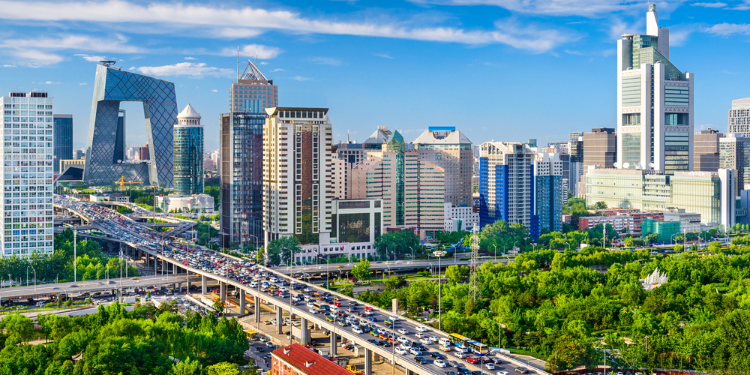

"Zero COVID" in China: a barrier to expatriation

"Zero COVID" in China: a barrier to expatriation - 2021-11-29
Xi Jinping is determined to impose his vision on the world. Economic, political, diplomatic leader, or of the future according to Xi Jinping. Utopia or realistic project? Still cut off from the world with its zero Covid policy, does China still have the means to achieve its ambitions?
A risky "zero Covid" strategy
China is one of the few countries to maintain its "zero Covid" strategy. With an average of 34 infections per day, and 74.78% of its population fully vaccinated as of November 18, China is far from experiencing an epidemic outbreak such as the one observed in Europe. But Xi Jinping is aiming for the Beijing Winter Olympics next February, with a target of 80% of the population vaccinated by the end of the year. Zero tolerance therefore, even if it means putting entire districts under lockdown. At the beginning of the month, 6 positive cases led to the confinement of Hongfuyuan, a district of Beijing with more than 20,000 inhabitants, for two weeks. Last month, the city of Lanzhou and its 4 million inhabitants were confined. The restrictions are imposed on everyone, including those who have been vaccinated. In north-east China, the city of Heihe is testing "citizen's denunciation", and promises 100,000 yuan (about 13,500€) to anyone who finds the origin of a local outbreak of COVID.
However, the effectiveness of Chinese vaccines is still being determined, especially in the face of the virulence of other COVID strains, including the Delta variant, obviously. However, China continues to ban all foreign vaccines, preferring to develop its own formulas, in particular, new messenger RNA vaccines. The country has been living in a bubble for almost two years, and does not seem to want to change its policy anytime soon. This voluntary isolation is another way for Xi Jinping to impose himself internationally. While other states (Australia, New Zealand, Singapore...) have abandoned the "zero Covid" strategy, China is staying the course. Observers say it is impossible to go backwards. Xi Jinping wants to be the stronger man, against the occident that seems unable to control the pandemic. Foreigners, investors, businessmen and women, Chinese and international students are, thus, seeing their projects fall through because of Chinese policy.
Is China still attractive?
Closed borders, almost non-existent international flights, lockdowns, quarantines, compulsory PCR tests including for vaccinated people, restrictions... All these measures lead to a decline of the Chinese economy and the morale of expatriates. More and more expatriates are reviewing their career plans. The restrictions are getting the better of the most resilient. 70% of the member companies of the American Chamber of Commerce in Shanghai admit that they are struggling to recruit foreign talent. Talent that is essential to growth. For observers, China must change course or review its ambitions. The government is assuming and hammering away: it will be the leading economic power by 2049. The date is not chosen at random. It corresponds to the hundredth anniversary of the Chinese Communists' taking power. It is the only country to have ended the year with a 6% increase in investments, i.e. more than 150 billion dollars of capital. Very quickly, it is once again the world's leading supplier, especially of masks. According to the Ministry of Commerce in Beijing, China exported 220 billion masks last year, an average of 40 Chinese masks per person.
But these figures mask precarious economic health. After a promising first quarter (+18.3% growth), the country's economy is now in decline: +7.9% in the second quarter, +4.9% in the third quarter. The fault lies with the significant electricity shortages that are slowing down industries. Steel, cement and aluminium production, key sectors of the Chinese economy, have been affected. Government-imposed rationing is not helping. Private sector debt is 127% of GDP, almost as much as the US rival (125%). But Chinese productivity remains lower than that of the major powers. The economy is slowing down. Inflation is rising, and household consumption remains fragile.
Another pillar under threat: real estate. The sector, which represents no less than 30% of GDP and 20% of jobs (including furniture sales), is over indebted. Xi Jinping is counting on the real estate giants to build this "new era", the highlight of his (and almost assured) third term. It is impossible for the government not to tackle the real estate bubble, which has been the source of growth for more than 20 years.
For many expatriates and to-be expatriates, the choice seems to be made: China itself has given up its international talent. Western entrepreneurs are raising the red flag claiming the closure of the country is killing international trade. Ker Gibbs and Alan Beebe, presidents of the American Chambers of Commerce based in Beijing and Shanghai, have announced that they will be leaving their positions in the coming months. For Ker Gibbs, it is openness to the world that has allowed China to become one of the world's leading economies. However, its current policy goes against the free flow of international trade. Gibbs notes a decline in the number of expatriates and students in China. The country is losing its attractiveness. These fears remain for 2022, as China is still clinging to its zero tolerance policy. Observers warn that the country risks paying for its policy in the long term. IT experts, researchers, scientists, analysts, computer programmers... Talents in the high-tech sectors are already leaving for other countries, or are giving up on China.
https://www.expat.com/en/expat-mag/6282-zero-covid-in-china-a-barrier-to-expatriation.html







